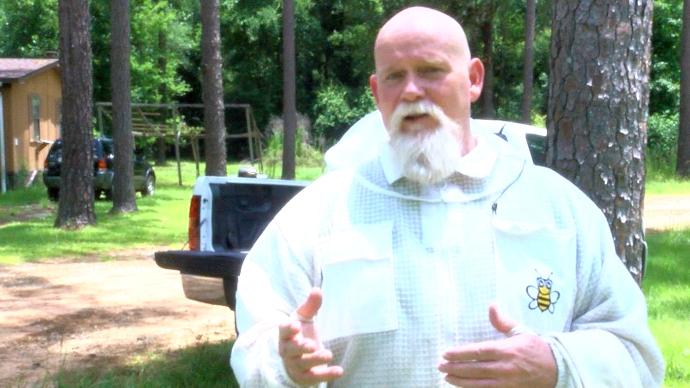Buzz about Asian hornets adds to woes of Georgia’s beekeepers – WRDW-TV
[ad_1]
Tuesday, May 26, 2020

Beekeeper Virgil Brandon (Source: WALB)
ALBANY, Ga. (WALB) — By now, you may have heard about the giant Asian hornets that have been attacking beehives in the U.S.
Some beekeepers in Georgia want people to know that there are no Asian giant “murder” hornets here, but their biggest concern right now are their honeybees.
“For one thing, they like to live out away from people anyway, they’re in the woods, mainly in the woods and in the low mountainous region, so they kind of don’t live where we are,” said beekeeper Virgil Brandon.
With our added anxiety, social media buzzed about insects named Asian giant hornets.
INSECTS | Cicadas emerge 4 years early in Augusta region, surprising scientists
The first one reported was in Washington State. The hornets attack and destroy honeybee hives.
Beekeepers said the Asian hornets pose no more of a threat to people than any other hornets.
“The Asian hornets are just like the hornets out here. The only time you really have to worry about them is when you are getting into their home, just like bees here,” said Brandon.
Brandon is a beekeeper from the Southwest Georgia Beekeepers Club.
While Asian hornets aren’t a native threat to Georgia’s honeybees, there are other threats to their survival which can impact state agriculture.
Honeybees add about one-third of crop pollination to Georgia’s produce.
WILDLIFE | Georgia Aquarium welcomes baby beluga whale
“It adds about $20 billion per year for the agricultural industries, so it is a big boom for people who grow crops down here,” said Brandon.
Brandon said farmers and beekeepers should take precautions to protect honeybees.
The queen bee is constantly laying eggs to increase the population.
“There is one queen per box and usually lays 1,500 eggs a day, it is anywhere from 1,000 to 2,000 depending on the queen,” said Brandon.
Honeybee colonies should also be kept away from dangerous insecticides.
“If you are within a half a mile where the crops are sprayed, it could infect your bees,” said Brandon.
Copyright 2020 WALB. All rights reserved.
Let’s block ads! (Why?)
[ad_2]

